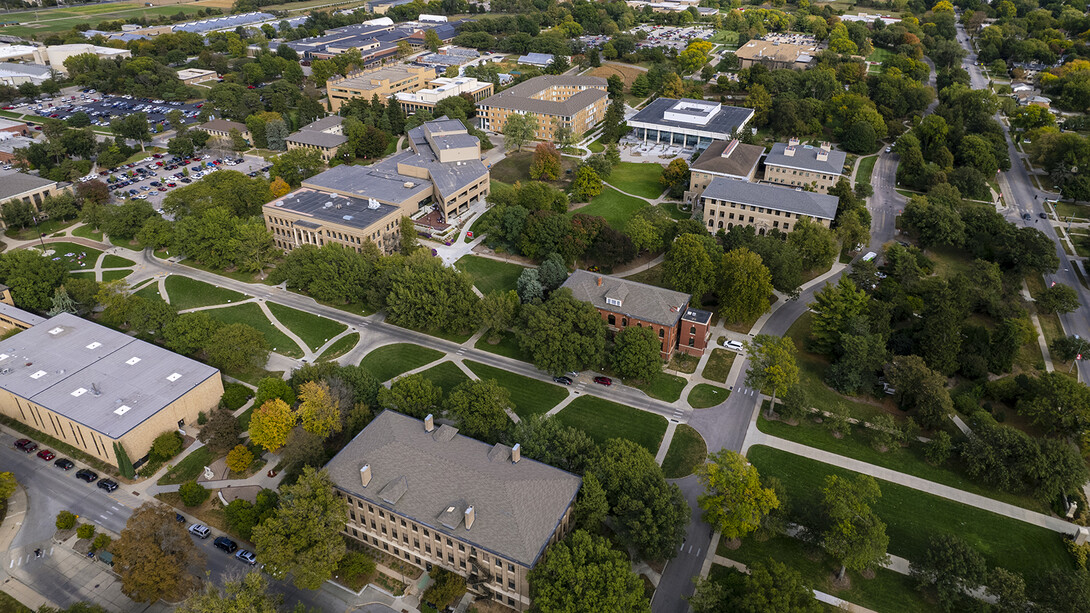
As the University of Nebraska–Lincoln moves forward with diversity planning and a new commitment to action, Nebraska Today is sitting down with university leaders to explore how inclusive excellence is being folded into day-to-day campus activities.
Since 2019, the university’s Office of Diversity and Inclusion has worked directly with institutional leaders in multiple ways, including through the Council of Inclusive Excellence and Diversity. Intended to connect colleges, primary campus units and ODI, the council is led by Nkenge Friday, assistant vice chancellor for strategic initiatives, with representation from across the institution.
The work of the council has been pivotal in guiding diversity, equity and inclusion plans university-wide. And, momentum realized through the council is being featured in this Q&A series.
Today, we’re continuing the series with the College of Agricultural Sciences and Natural Resources, talking with Tiffany Heng-Moss, dean of the college.
What is the state of diversity, equity and inclusion planning in your college/department/unit?
Our Institute of Agriculture and Natural Resources, of which the College of Agricultural Sciences and Natural Resources is a part, has an inclusive excellence strategic framework that is guiding the college’s diversity, equity, inclusion and belonging efforts.
Our CASNR community strives for excellence in all that we do. True excellence requires that each individual be able to work and learn in an atmosphere of respect, dignity and acceptance. CASNR lives out our commitment for inclusive excellence through our core values of listening, learning, doing and reflecting.
It is important that we engage in the moment and continuously renew our commitment to diversity, equity and inclusion. As a college community, we have a collective responsibility to ensure that every person and every interaction matters, which will require both short-term programs and initiatives, as well as a long-term commitment to organizational change that reflects our core values.
Are elements of your DEI planning already being implemented?
They are. In fact, we focused our CASNR annual meeting on our diversity, equity and inclusion efforts and highlighted a number of initiatives that are already up and running. We are committed to growing an inclusive CASNR ecosystem and providing every member of our community with a safe environment where they feel welcomed, valued, respected and have the support to grow, thrive and reach their full potential. Among the initiatives highlighted at our meeting:
CASNR First Gen Connect, which is a unique mentorship program that connects first-generation students with alumni, faculty and staff in small groups. Each small group includes a CASNR alum, faculty, or staff member, and two to three first-generation students.
Minorities in Agriculture, Natural Resources, and Related Sciences, which is a nationwide organization with a brand new chapter at UNL.
CASNR Emerging Leaders in Diversity, a new program for students who are passionate about diversity, equity, inclusion and leadership, and who want to grow, challenge and empower themselves.
Cultivate Access, an innovative program that connects current Nebraska high school freshmen, sophomores and juniors from diverse backgrounds with mentors in STEM to explore the agricultural industry.
Husker Pantry, a food pantry for our students, which has a new location on East Campus.
Additionally, we are incorporating a diversity, equity and inclusion module as part of our CASNR Start Smart online training program for all incoming students.
How are individuals within your college/department/unit helping advance inclusive excellence?
Our faculty, staff and students have been instrumental in co-creating, leading and participating in nearly every aspect of our diversity, equity and inclusion efforts. For example, a group of faculty members have provided workshops around building inclusive classrooms and having difficult conversations, which have grown into a program we call DEI Teaching and Learning Conversations. Additionally, we are currently piloting the JEDI Digital Badge with graduate students. This badge was created by current CASNR graduate students in partnership with faculty and explores aspects of cultural awareness, openness and identity that are foundational to concepts of justice, equity, diversity and inclusion (JEDI).
Is there a part of the plan that is most exciting to you and/or having a positive impact on your college/department/unit?
I am excited about all of these programs and initiatives. If I had to choose one, it would be the JEDI digital badge. I love that this was co-created by students working alongside faculty experts, and I’m so excited to see students move through the pilot phase.







